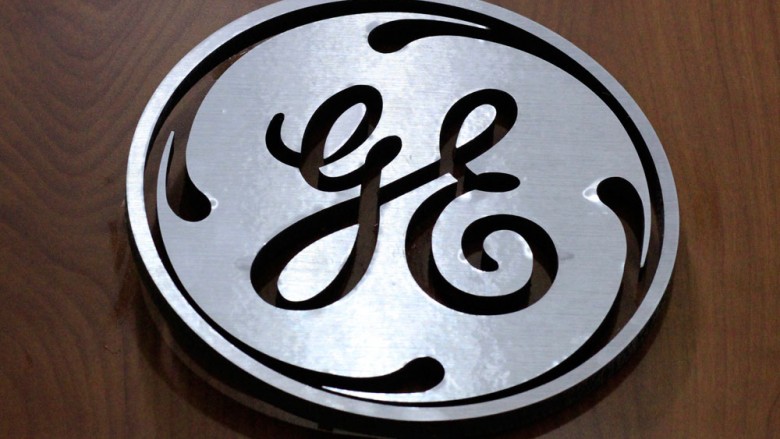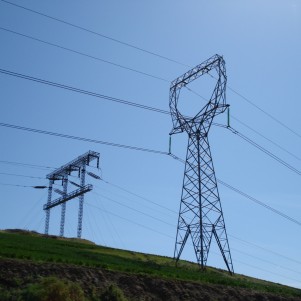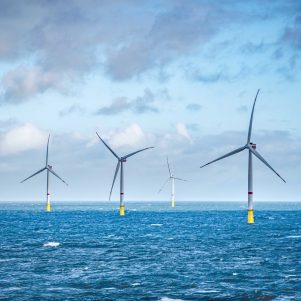Conn.-based GE says it may move up to 500 US jobs overseas
By Associated Press | September 17, 2015, 6:34 EDT
 In this Thursday, Jan. 16, 2014 file photo, a General Electric (GE) logo is displayed at a store in Cranberry Township, Pa. GE is selling its health care lending unit and related loans to Capital One for roughly $9 billion as it shrinks its GE Capital business. (AP Photo/Gene J. Puskar, File)
In this Thursday, Jan. 16, 2014 file photo, a General Electric (GE) logo is displayed at a store in Cranberry Township, Pa. GE is selling its health care lending unit and related loans to Capital One for roughly $9 billion as it shrinks its GE Capital business. (AP Photo/Gene J. Puskar, File) Written by Stephen Singer
HARTFORD, Conn. (AP) — General Electric Co. said Tuesday that it may move about 500 jobs overseas because Congress did not renew a government program that allows foreign companies to borrow money to buy U.S. products.
Authorization for the U.S. Export-Import Bank was not approved by Congress, forcing it to stop lending July 1. Foreign companies use the agency to buy expensive U.S. products when bank loans are not available.
As a result, GE says 100 jobs from a Houston plant that makes gas turbines will move to Hungary and China in 2016. The Fairfield, Connecticut, industrial conglomerate says those countries have lending options in place for customers.
“We do not make today’s announcements lightly and in fact, have done everything in our power to avoid making these moves at all, but Congress left us no choice when it failed to reauthorize the Ex-Im Bank this summer,” said John Rice, GE’s vice chairman.
Another 400 jobs could be created in France instead of factories in South Carolina, Maine and New York if the company wins projects it is bidding on. The projects require financing, and the export-credit agency in France has agreed to provide it.
Democrats in Congress, citing GE’s announcement, urged Republican leaders to introduce legislation to get the Ex-Im bank operating.
“Already, small, medium and large businesses across the country are feeling the negative impact of this shutdown, laying off employees, and seeing business put on hold,” House Democratic Whip Steny Hoyer and others wrote to Speaker John Boehner and Senate Majority Leader Mitch McConnell.
GE said it’s bidding on projects valued at $11 billion that require export financing. It said it has reached agreement with the French export-credit agency to provide a line of credit for global power projects. GE said the line of credit will initially support potential orders in international markets that include Indonesia.
To access the required export credit for its customers of its aeroderivatives turbines, GE will move its final assembly from the U.S. to Hungary and China.
Rep. Joe Courtney, D-Conn., a supporter of the Ex-Im Bank, said the refusal by Republicans to back the federal agency is taking a toll.
“This is not a political parlor game in Washington, D.C.,” he said. “They’ve run the numbers and there’s nothing out there that even comes close to what they’ve been getting from Ex-Im for decades.”
Republican Rep. Jeb Hensarling, chairman of the House Financial Services Committee, tied GE’s shift to Europe for capital to its dispute with Connecticut officials over increased business taxes. He also cited GE CEO Jeff Immelt’s role as chairman of the President’s Council on Jobs and Competitiveness.
“It’s troubling that the head of President Obama’s Jobs Council is announcing GE is leaving Connecticutbecause the state’s taxes are too high and is choosing to send jobs overseas because U.S. taxpayer-provided subsidies are too low,” he said.
GE has not announced it’s leaving Connecticut. It said in June it’s considering relocating its headquarters to a “more pro-business” state.
White House spokesman Josh Earnest blamed the GOP majority in Congress for GE’s decision.
“We hear a lot about Republicans complaining about supposedly job-killing regulations,” he said. “The fact is, it seems like, based on what GE has reported today, the Republicans are killing quite a few jobs on their own.”
The embattled and little-known Ex-Im Bank has been at the center of a fight between tea party Republicans who say it’s not needed and Democrats and some Republicans — backed by manufacturers and large businesses — who say it promotes trade and helps create jobs.
The Ex-Im Bank’s principal role is to guarantee commercial bank loans to foreign businesses and governments to buy U.S. products. U.S. taxpayers would be responsible for a loan if a company operating overseas defaults on a bank loan used to buy a product made by a U.S. company.
Copyright 2015 The Associated Press. All rights reserved. This material may not be published, broadcast, rewritten or redistributed.











